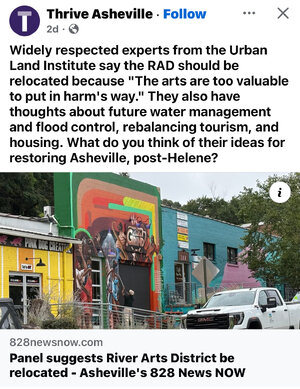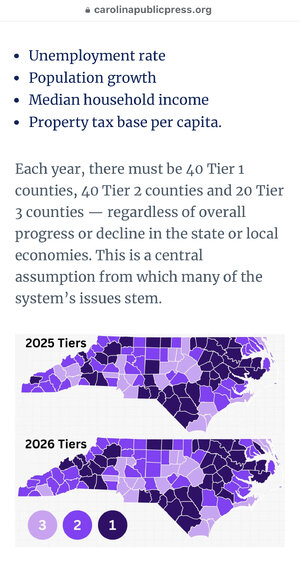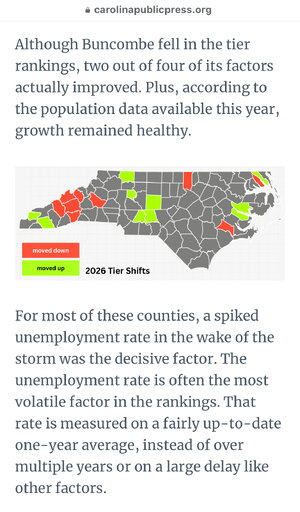About this event
Community • State
In the aftermath of Hurricane Helene, we saw the heart of the mountains.
Neighbors became lifelines, and communities across the region
rose together.
One year later, journalists from across the state are coming together to
honor that resilience through the power of story.
Join us for an
evening of stories and conversations about how we’ve helped one another, what we’ve lost, and what we’ve learned as our region continues to recover.
NC Local, in partnership with UNC Asheville and newsrooms across the state, is hosting this evening of connection and storytelling as part of UNC Asheville’s
Post-Helene Symposium: “Remembering, Rebuilding and Reimagining.”
This free event is open to the public, but we ask you to register.
Event Schedule:
5:30-6:30 pm | Pre-event reception: Attendees are invited to meet journalists who have been covering Helene and community partners who are providing opportunities to document and reflect on the last year. Light refreshments provided.
6:30-8:00 pm | The Heart of the Mountains: Join us in the Blue Ridge Room for an evening of storytelling and interviews highlighting the voices of unsung heroes who made a difference in their communities in the days, weeks and months after Helene.
Featuring:
Michael Hayes, Umoja Health, Wellness, and Justice Collective Founder and Executive
Director
John Coffey, Black Mountain Fire Chief
Travis Long, News & Observer Photojournalist
Emily Cadmus, Buncombe County Special Collections Hell or High Water Project Coordinator
Delia Jovel Dubón, Tierra Fértil Coop Co-Founder
Amanda Watts, Yancey County Nurse and Field Hospital Organizer
John Arndt, Swannanoa resident who rescued families using his kayak
Phillip Cooper, Operation Gateway and Voices of Affrilachia Founder
Brandon and David Davis, Owners of DayTrip
Donna Ray Norton, Madison County 8th Generation Ballad Singer
Spanish Translation:
Live interpretation in Spanish will be available via headset, provided by the Cenzontlé Language Justice Cooporative. We are also excited to present a portion of the event in Spanish with English subtitles.
More Details:
Want to share your story ahead of the event? Learn more about Buncombe County Special Collections "Come Hell or High Water"
Community Memory Project here.
UNC Asheville’s
Post-Helene Symposium: “Remembering, Rebuilding and Reimagining” takes place
September 24 to 26, 2025. This free event is hosted on the campus of UNC Asheville, with additional ticketed events taking place at select locations across our city. Learn more and
register for other events here.
NC Local is a nonprofit news organization that works in partnership with other newsrooms across the state to ensure all North Carolinians have access to accurate, trustworthy and useful information about how issues affect their lives. The Heart of the Mountains event is produced in partnership with Asheville Citizen-Times, Ashevegas Hot Sheet, The Assembly, Beacon-Tribune, Blue Ridge Public Radio, Buncombe County Special Collections, Carolina Public Press, The Charlotte Observer, Enlace Latino NC, Mountain Xpress, The News & Observer, Smoky Mountain News and UNC Asheville.
Thank you to our presenting sponsor Dogwood Health Trust.
By providing your email address during registration, you agree to receive updates from NC Local. We may also send you emails about future events, products, or services that may be of interest to you.
Stories from a year of courage, kindness, and community after Hurricane Helene

www.eventbrite.com

www.wral.com






